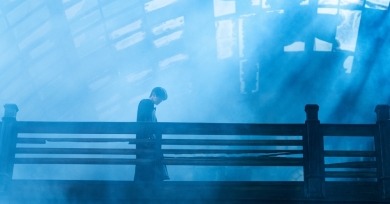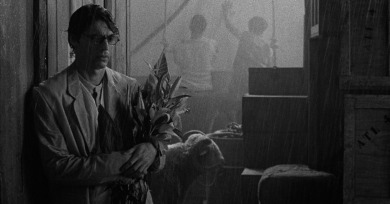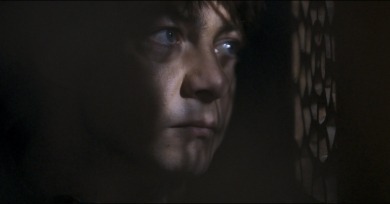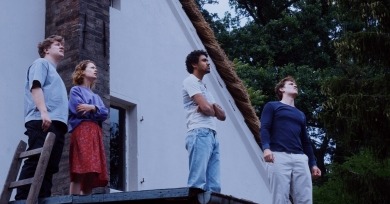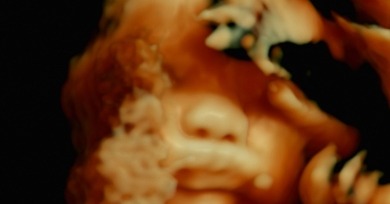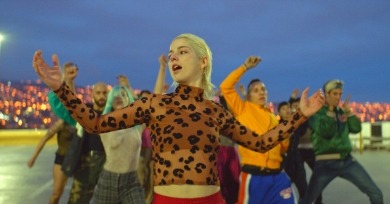Leonardo Goi
The point here is not the destination or the shellshocked wanderers, but the conflagrations of sounds and visuals Laxe conjures along the way.
For all our anxieties around the obsolescence of the medium, Bi Gan is moved by an unwavering belief in its subversive powers. Resurrection is not a valentine so much as a manifesto, a rousing wake-up call to all that cinema can still do.
For a tale of doomed love and excruciating loneliness, the sixth feature from Miguel Gomes is not powered by sorrow so much as an inordinate fondness for the world, a film where director and characters alike seem determined to find beauty in the most unexpected places.
The intention here was to make an erotic film without relying on or showing sexual acts. That was something I told myself from the very beginning: no one will make love this time.
I would have never imagined this stuff about A.I. would feel so contemporary by the time we would be ready to show the film. Not to mention how much more relevant it seems now with the actors’ and writers’ strikes still ongoing. It’s not that I didn’t foresee the dangers of artificial intelligence, but I thought it’d be something we’d have to deal with in 15 or 20 years.
To peg the work of Bas Devos as that of a miniaturist only lays bare the limited language we use to describe a film, and our frustrating tendency to conflate budget (and runtime) with scope.
The film is a stark departure from the mythical terrain of Undine or the hauntological anachronism of Transit. History is here only vaguely alluded to.
At once repugnant and entrancing, it turns the body into the ultimate frontier, an alien landscape teeming with surreal visions, less a decaying vessel than an undiscovered planet.
I like to think of the camera as something that helps me capture things I would not normally see. So when I see filmmakers watching their own images on the combo in real time, as they shoot, I cannot help but think of it as a tautology. Because they are assimilating the potentiality of the human eye.
There is this weird sense of grief for someone who is still alive, technically, but you also understand that you can live through opposite things at the same moment. Grief and sadness. Rebirth and happiness. All at the same time.
I wanted to show these atrocities to remind Europe, and the whole world, that these barbarities are not happening far away, in some distant past, but right here, right now.
If Ema is ostensibly fighting for another chance at motherhood, she is also struggling to assert her own individuality over and against a system that has already decided the place she ought to occupy (on stage and at home).
What was especially difficult was letting myself be guided by these unknown forces orbiting around me. It all goes back to af Klint and Kandinsky, who in their practice strived to make the unknown visible, to give visuals to things we know are there but cannot fully articulate.

